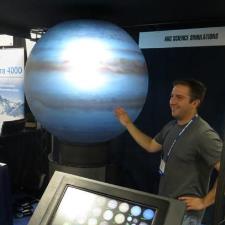
Akintayo F.
asked • 07/28/19What is the Big Bang
1 Expert Answer

James L. answered • 08/04/19
Tutoring for AP and IB Physics and SAT Math
As far as physicists know it's the beginning of the universe. Astronomers know that the universe is expanding with time. So, if you look backwards in time you reverse the expansion until 13,8 billion years ago, the universe is compressed into a tiny dot that exploded, hence the theory of a Big Band. Lots of theories about how galaxies and stars form after the big bang. No one knows how the tiny dot got there in the first place.

Richard C.
My only comment is to not consider it an explosion, because that analogy implies an expansion into some sort of medium. The universe at the moment of the "big bang" was simply very hot and very small and all space and time that we know today started at that moment of expansion that we now call the "big bang", but there was no sound as the name might suggest or explosion.08/14/19
Still looking for help? Get the right answer, fast.
Get a free answer to a quick problem.
Most questions answered within 4 hours.
OR
Choose an expert and meet online. No packages or subscriptions, pay only for the time you need.





Paul F.
The Big Bang is a theory which explains what Edwin Hubble, an astronomer in the 1920's, observed in his telescope. His analysis of the light collected concluded that all the stars were moving away from us. The idea which explains such a phenomena is that there was a time when all matter existed at a single point in space and time and subsequently an enormous explosion of particles emanated in all directions. These particles eventually cooled and combined in to stars, planets and other bodies such as meteors, asteroids, binary stars and black holes.08/02/19